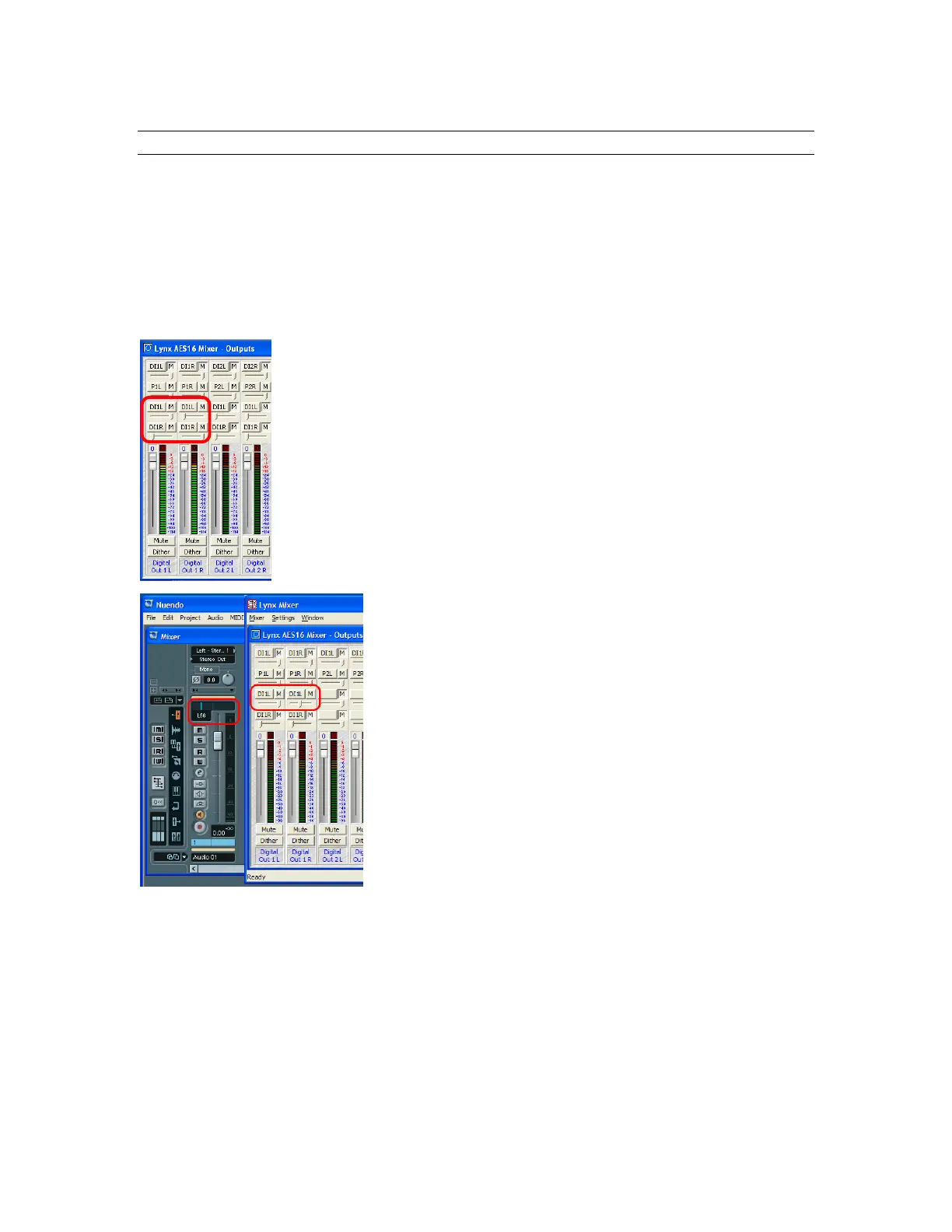Using the AES16
7.2.3 Using Direct Monitoring in an ASIO Application
The Direct Monitoring (sometimes referred to as “hardware monitoring”) feature offered in many popular
third party applications provides a means to enable low-latency monitoring supported by the AES16’s on-
board digital mixer. Instead of using the Lynx Mixer to manually enable monitoring as discussed in the
previous section, controls within the application provide convenient access to this functionality.
Additionally, some applications offer “tape type” monitoring whereby inputs are monitored only when
recording is taking place. When utilizing Direct Monitoring from a recording application, it is preferable to
NOT make alterations to the Lynx mixer directly, as these changes may cause Direct Monitoring to
produce unexpected results.
When Direct Monitoring is enabled in an application, Output Monitor Source
Buttons C and D are automatically assigned monitor sources.
Since panning of mono input sources is available with Direct
Monitoring, even though pan controls are not a feature of the Lynx
mixer, each mono source is assigned to both the left and right
channels of an output channel strip. When a mono signal is panned
from within the host application, the level sliders under each instance
of the monitor source will move accordingly. As an example: If
Digital In 1 Left is being monitored on Digital Out 1 Left & Right,
when you pan the input signal to the left the Monitor Source Volume
for Digital Out 1 Left increases and the Monitor Source Volume for
Digital Out 1 Right decreases.
Since this feature relies upon code within a third party application to operate, different software versions
may behave differently than described.
AES16 User Manual 61
